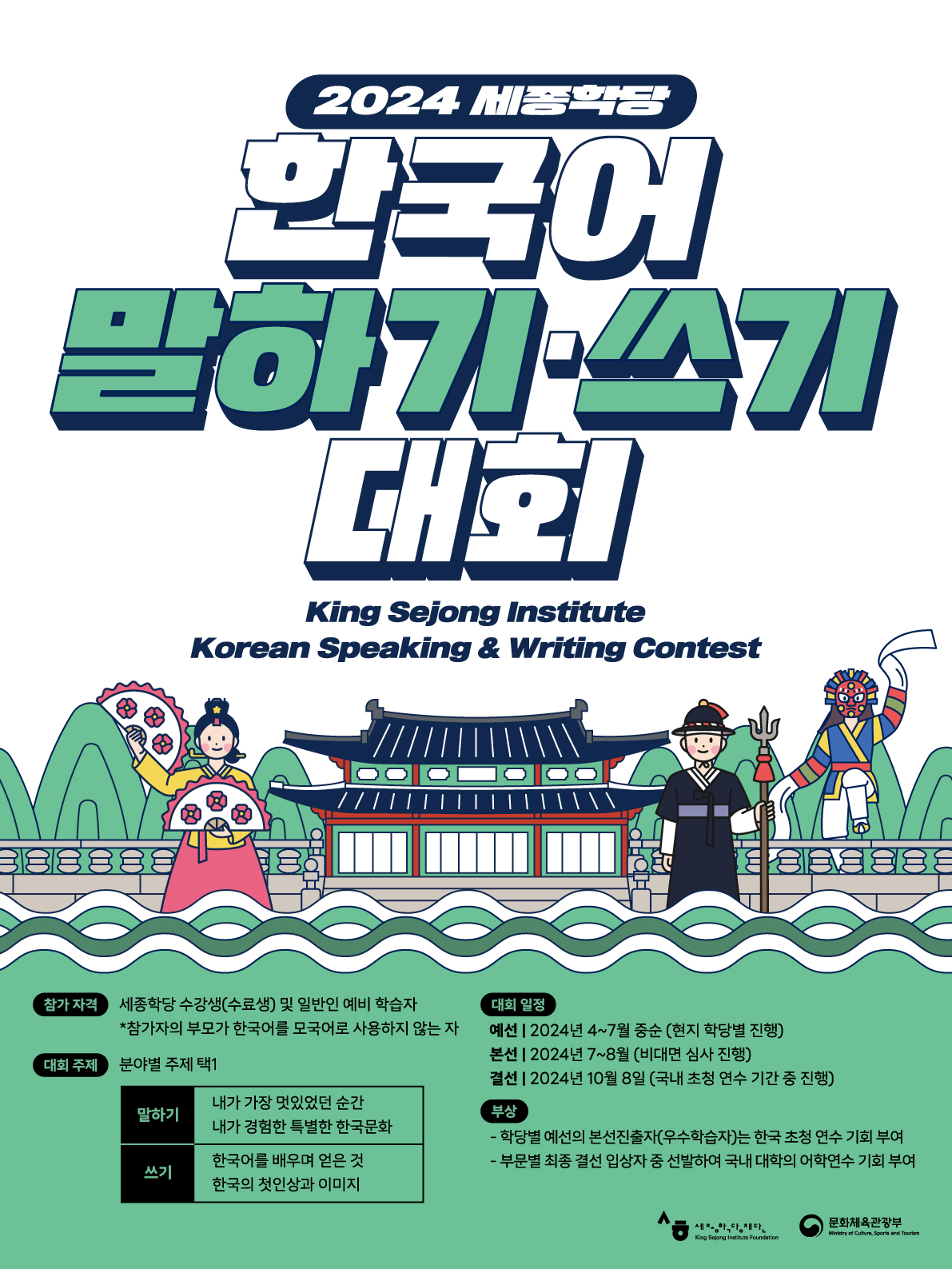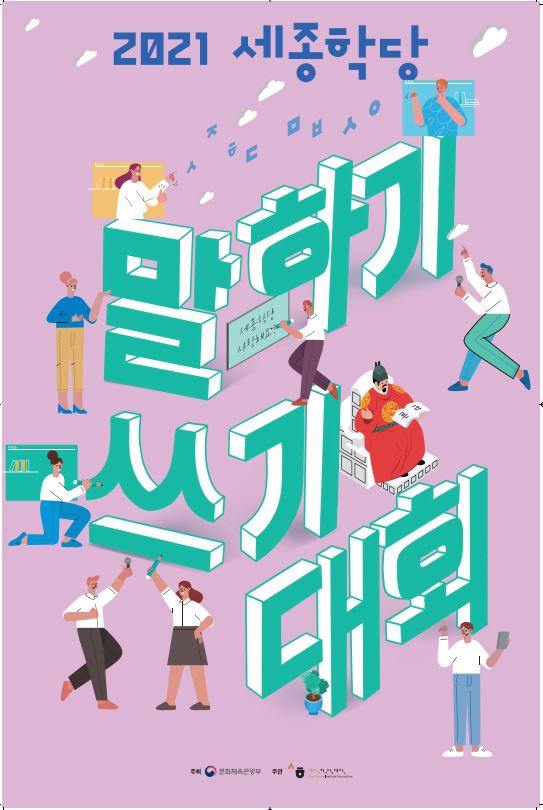Korean Speech and Writing Contest
The KSI Korean Speech/Writing Contest is one of the KSIF’s flagship scholarship programs. KSIs all around the world hold preliminaries from April to July every year. The winners of each KSI’s speech and writing contest are invited to “KSI’s Invitational Training for Outstanding Learners” organized by the KSIF in October. The winners of each institute will be provided with an electronic learning device as an additional prize.

2024 MTL KING SEJONG KOREAN WRITING & SPEECH CONTEST

2023 MTL KING SEJONG KOREAN SPEECH CONTEST

2022 MTL KING SEJONG KOREAN SPEECH & WRITING CONTEST

2021 MTL KING SEJONG KOREAN SPEECH & WRITING CONTEST

